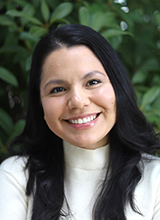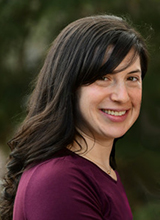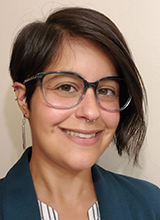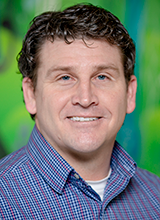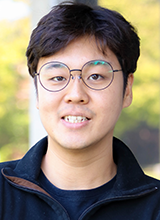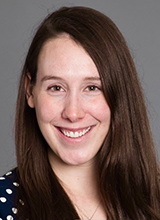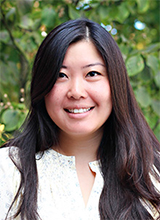Lupita Santillan, PhD, is an Acting Assistant Professor in the department of Psychiatry and Behavioral Sciences. Dr. Santillan is an attending psychologist for the Early Childhood Clinic and the CALMA Clinic at Seattle Children’s Hospital. She is passionate about increasing access to evidence-based early childhood interventions and the provision of mental and behavioral health in Spanish. Her clinical training has focused on providing care to families and children with developmental delays and neurodevelopmental disabilities. Dr. Santillan’s research focuses on the development, implementation, and efficacy of evidence-based behavioral treatments to support children with developmental delays and neurodevelopmental disabilities.
My research focuses on improving clinical outcome measures and intervention outcomes for individuals with Down syndrome, neurodevelopmental disorders, and other special healthcare needs. I conduct research in real-world, clinical settings using multiple different tools, including caregiver-report, behavioral assessments, and electroencephalography (EEG) to study the development of and interventions for challenging behaviors. I am currently a KL2 INCLUDE Scholar conducting research on cognitive abilities and challenging behaviors in youth with Down syndrome.
Board Certified in Behavioral & Cognitive Psychology
Board Certified Behavior Analyst-Doctoral
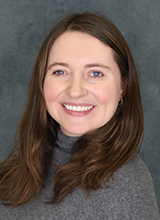
Caitlin Courshon, PhD (she/her), is an attending psychologist for the Behavior and Attention Management (BAM) Program within Outpatient Psychiatry at Seattle Children’s Hospital and an Acting Assistant Professor in the Department of Psychiatry and Behavioral Sciences at the University of Washington. Dr. Courshon has clinical expertise in the treatment, consultation, and assessment of children with disruptive behaviors and their families, including, but not limited to, neurodevelopmental disorders such as attention-deficit/hyperactivity disorder (ADHD), autism spectrum disorder, and disruptive behavior disorders. Her clinical work integrates evidence-based treatments, including parent behavior management training (PBMT), cognitive-behavioral therapy (CBT), and dialectical behavior therapy (DBT).
Dr. Courshon’s current academic interests focus on researching clinical outcomes of PBMT programs and contributing to ongoing program development to expand services for caregivers navigating challenges related to home-school communication and disruptive behaviors in school settings. She is deeply committed to helping children improve their behaviors, empowering caregivers and educators to enhance their self-efficacy in supporting children with disruptive behaviors, and fostering healthy, safe, and inclusive environments across home, school, and community settings.
My work focuses on the development, dissemination, and implementation of tools for the assessment and treatment of autism spectrum disorder. I am also interested in transdiagnostic interventions for autism spectrum disorder to increase efficacy for individuals and families, as well as access to care. My clinical pursuits include conducting diagnostic evaluations for autism for youth of all ages, as well as running groups and classes for autistic individuals and their families.
My clinical work focuses on the assessment and treatment of children and adolescents with intellectual and developmental disabilities (IDD) who engage in severe challenging behavior. My interest in this underserved population is in the development of a continuum of care, providing evidence-based care, and in the dissemination of best practices through research and training. At the University of Washington, I work on the Psychiatry and Behavioral Medicine Unit at Seattle Children’s and lead the sub-unit that specializes in patients with IDD.
James Lee, PhD, BCBA-D is an Assistant Professor in the Department of Psychiatry and Behavioral Sciences at the University of Washington and the Seattle Children’s Autism Center. His research focuses on developing, adapting, and implementing evidence-based practices among underserved families of young autistic children who live in low-resourced communities both domestically and internationally. James has conducted research examining feasibility, effectiveness, and social validity of interventions for caregivers of young autistic children, and he is the lead developer of the Cultural Adaptation Checklist. His primary interest is using implementation science to enhance access to EBP among marginalized families.
CARE Lab
My clinical and research work focus on ways to improve care for children with complex neurodevelopmental and behavioral concerns, especially in the context of prenatal substance exposures and fetal alcohol spectrum disorders (FASD).
Current projects include developing training to reduce stigma and improve accurate retrospective screening for prenatal alcohol exposure; examining factors influencing response to the Families Moving Forward Program for FASD; and, evaluating the clinical utility of the proposed diagnosis ND-PAE.
Jill Locke, Ph.D., is an Associate Professor in the UW Department of Psychiatry and Behavioral Sciences, a licensed child psychologist and the former co-Director of the SMART Center from 2020-23. To date, her research has focused on the: 1) presentation of social impairment for autistic youth; 2) identification of best practices for autistic youth; and 3) understanding of successful implementation and sustainment of evidence-based practices (EBPs) for autistic youth in public school settings. Her current research focuses on understanding EBP use to support autistic youth in inclusive settings and developing and testing implementation strategies to support the adoption, implementation, and sustainment of EBPs in public schools.
